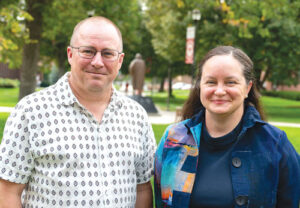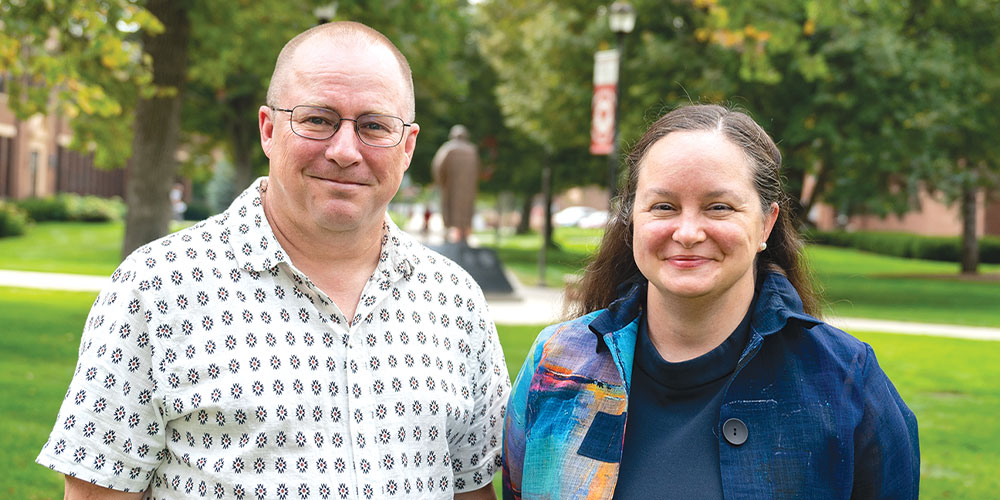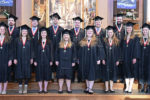 |

Since January 2023, Dr. Nichole LaGrow has been putting the pieces into place for a new nontraditional elementary education degree at Martin Luther College (MLC), New Ulm, Minn. This degree utilizes Competency-Based Education (CBE), a method that awards degrees based on proven competence instead of credit hours, taking into account students’ past experiences and previous job skills. Competency-Based Education is an alternative pathway to ministry for those who are unable to move to New Ulm for a traditional on-campus program. It allows WELS members to finish their college degrees while staying in their own communities and their own jobs—some of which are in WELS schools. MLC’s InFocus magazine interviewed LaGrow for an update on the program. Here’s a portion of that interview:
Will Competency-Based Education be an easy way to an elementary education degree and a call?
We do not want to give anyone the impression that this is a quick backdoor way into the ministry. We are intentionally crafting a program that will hold the same academic rigor as our traditional program.
So, in the fundamental ways, the nontraditional CBE program is similar to MLC’s traditional on- campus program.
Yes, the outcomes are the same. A learner who engages with the CBE elementary education degree program will be tasked with achieving the same outcomes and meeting the same standards for licensure as our on-campus students. In many cases, we will use the same, or very similar, major assessments, which ask learners to create lesson plans or unit plans, critique case studies and scenarios, engage in self-reflection, or craft research papers and presentations.
What will make it different?
- CBE is entirely online: Learners will not need to come to New Ulm, though they are always welcome to visit.
- CBE is self-paced and flexibly paced: Learners will move through the course content differently and more independently, completing comprehension checks and assessments to demonstrate their knowledge and competence. While we will encourage learners to complete a minimum of 12 credits (about four courses) each term, they will engage with each course one at a time, accelerating where they have knowledge and experience to support their learning and taking time to deepen their knowledge when content is new or needs to be refreshed.
- CBE does not include gen-eds. The program will not include the general education courses that all college degrees require. Learners will need to complete those courses at another college or university if they do not already have a degree.
These are big differences. For those who could never enroll in a full-time on-campus experience here, these differences will make it possible for them to become licensed teachers.
The program is not merely about producing licensed teachers, is it?
Producing licensed teachers is one goal, but not the only goal. MLC graduates are also synod-certified. The CBE program, like our traditional program, is grounded in MLC’s mission “to train men and women so that they are qualified to meet the public ministry needs of WELS and to proclaim the Word of God faithfully and in accord with the Lutheran Confessions in the Book of Concord.” That means we are also building a CBE course of study in the required theology courses, which are imperative for shaping who we are as Lutheran educators.
When can MLC officially admit students to this program?
We are still at least a year away from recruiting and admitting our first cohort of learners. We need to make our way through all the internal, on-campus curriculum review processes and meet all the state licensing and accreditation requirements.
What brings me joy is knowing that each day we are one step closer to welcoming our first cohort of learners. I cannot wait to share the content, activities, and assessments we are creating with them.
Learn more about MLC’s nontraditional education program in the November 2023 WELS Connection.
Read the entire interview from InFocus on MLC’s Competency-Based Education program.
Learn more about Doctors Nichole and Martin LaGrow.
Author: FIC
Volume: 110, Number 11
Issue: November 2023





